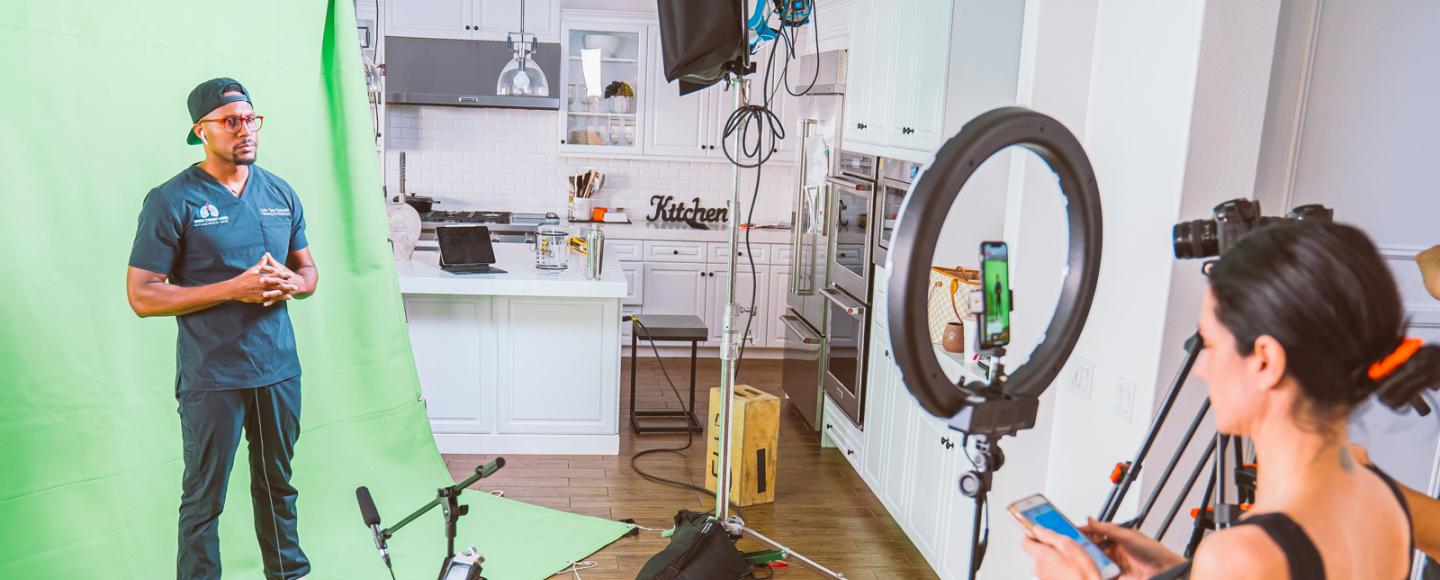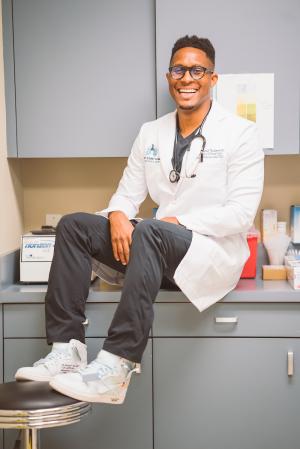Table of ContentsClose

As a pulmonologist, Cedric “Jamie” Rutland (09MD, 12R) knows the importance of explaining complex medical issues to his patients in plain language. With the encouragement of a friend, he created a YouTube channel called "Medicine Deconstructed,” which breaks down the science behind common medical questions.
Rutland's YouTube channel, "Medicine Deconstructed," is popular among both medical professionals and the general public.
What began as a fun project suddenly became more serious during the COVID-19 pandemic. YouTube administrators contacted Rutland and asked if he would create episodes explaining COVID-19 from the perspective of a lung and respiratory medicine expert.
Since launching his first COVID-related segment in January 2020, subscribers to Rutland’s YouTube channel have tripled to more than 15,000. He creates these videos during his free time while maintaining a busy schedule as pulmonary and critical care specialist in Newport Beach, California.
“It's important to educate people on how to protect themselves and educate them on the immunology of the virus, why vaccines are necessary, and how vaccines actually work, so that people begin to understand the science,” he says.

Although creating these videos requires research and production skills, Rutland says he enjoys the process because he considers himself a teacher as well as a physician. He believes it’s important for patients, or anyone without a medical background, to understand basic medical concepts.
“The biggest issue in my field is that we spend all this time trying to communicate by using the medical terminology,” Rutland says. “It's really about whether the patient understands what [illness] they have, why they have it, and what they need to do about it.
His newest project, which began filming in late February, is a YouTube Originals series in which Rutland travels to barbershops around the country, discussing racial disparities in medicine.
“Black men like to receive their medical information in the barbershop,” Rutland says. “The pilot will be on COVID-19, but beyond COVID, there are other discussions to be had.”
Italo Brown, MD, MPH, an expert on health care disparities with Stanford Health Care, will join Rutland to offer his perspective. Each episode will also feature a celebrity who identifies with a particular city.
Although Rutland didn’t initially envision using YouTube and social media as part of his practice, he now embraces these outlets to promote health awareness.
And while some aspects of health care are trending toward a virtual delivery through telemedicine, Rutland still believes there is value in connecting with patients in person.
“I think the virtual format will be used as an outreach tool, and it will be used as a monitoring tool, but I think that the compassionate feeling of being within a few feet of someone—being able to touch them on the shoulder and hold their hand through certain situations—is absolutely necessary,” Rutland says. “That's not going to go away.”

We'd love to hear from you
Send us updates and news at medicine-alumni@uiowa.edu
